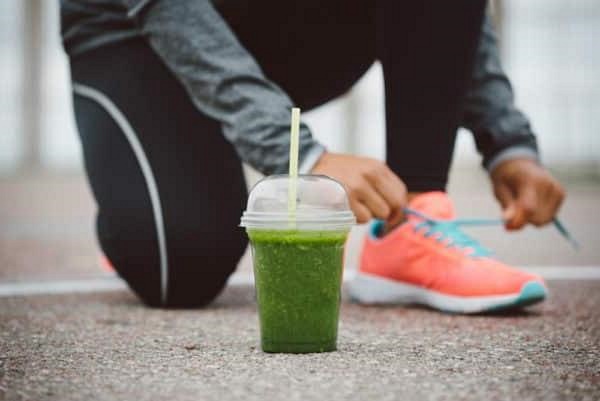Last Updated on: 18th December 2024, 12:33 pm
Vegetarian and vegan diets are increasingly popular among athletes for health, ethical, and environmental reasons. These diets, when properly planned, can support athletic performance as well as diets that include meat. This guide provides a detailed overview of vegetarian and vegan diets for athletes, focusing on practical advice to ensure nutritional adequacy without compromising performance.
This article aims to provide evidence-based benefits and practical guidance for athletes considering plant-based diets. Whether you’re an experienced athlete or a beginner, understanding vegetarian and vegan nutrition is crucial for optimizing athletic potential.
Nutritional Needs of Athletes

Macronutrient Requirements
- Carbohydrates: Essential for energy, sourced from whole grains, fruits, and vegetables.
- Proteins: Crucial for muscle repair and growth, with plant-based sources like legumes, tofu, and quinoa.
- Fats: Important for energy storage and hormone production, found in nuts, seeds, and avocados.
Micronutrient Considerations
Vitamins and minerals are vital for energy production, bone health, and oxygen transport. Iron, calcium, and vitamin B12 are particularly important for vegetarian and vegan athletes. A varied diet including fruits, vegetables, fortified foods, and supplements if necessary, can prevent deficiencies.
The Importance of Hydration
Hydration is crucial for athletes. Water regulates body temperature, lubricates joints, and aids nutrient transport. Adequate fluid intake before, during, and after exercise is essential for performance and recovery. Electrolyte-rich beverages can be beneficial during prolonged activities.
Protein: Building and Repairing Muscle

Challenges and Solutions for Getting Enough Protein
Meeting protein needs on a vegetarian or vegan diet requires planning. The focus should be on the quality of protein consumed. A variety of plant-based sources can provide sufficient protein. High-protein foods and protein supplements from peas, rice, or hemp can ensure all essential amino acids are consumed.
Best Plant-Based Protein Sources
- Legumes: Lentils and chickpeas are rich in protein.
- Tofu and Tempeh: Soy-based and versatile in dishes.
- Quinoa and Amaranth: Ancient grains with complete protein profiles.
- Nuts and Seeds: Almonds and chia seeds offer protein, healthy fats, and vitamins.
Combining Plant Proteins to Ensure Complete Amino Acid Profiles
Combining different plant proteins can create a complete amino acid profile. Eating a variety of protein sources throughout the day is key. For example, rice and beans together offer all essential amino acids. This strategy, known as protein complementation, is crucial for muscle repair and growth.
Energy Requirements and Carbohydrate Intake

The Role of Carbohydrates in an Athlete’s Diet
Carbohydrates are essential for fueling muscles during endurance and high-intensity performance. They also aid in recovery by replenishing glycogen stores post-exercise. A carbohydrate-rich diet supports training intensity and duration.
High-Quality Plant-Based Carbohydrate Sources
- Whole Grains: Oats and quinoa provide sustained energy.
- Sweet Potatoes and Bananas: Rich in carbohydrates and essential vitamins and minerals.
- Legumes: Lentils and chickpeas offer both protein and carbohydrates.
Timing Carbohydrate Intake for Optimal Performance
Strategic timing of carbohydrate intake enhances performance. Consuming carbohydrates before exercise provides energy, while periodic intake during prolonged activities maintains performance. Post-exercise, a carbohydrate-rich meal aids recovery by restoring glycogen levels.
Fats: Essential for Health and Performance

The Importance of Fats in the Diet
Fats are crucial for health and performance, providing energy for long-duration activities and aiding in vitamin absorption and hormone production. Understanding and incorporating healthy fats is key for vegetarian and vegan athletes.
Healthiest Plant-Based Fat Sources
Plant-based diets offer healthy fat sources like avocados, nuts, seeds, and olive oil. These provide monounsaturated fats, omega-3 fatty acids, and other nutrients essential for health and performance.
Balancing Omega-3 and Omega-6 Fatty Acid Intake
Balancing omega-3 and omega-6 intake is crucial for reducing inflammation. Focus on increasing omega-3 intake through flaxseeds, chia seeds, walnuts, and algae-based supplements to maintain optimal health and performance.
Incorporating a variety of these fat sources supports athletic performance and contributes to a nutrient-dense diet.
Micronutrients of Special Interest

Iron, Calcium, and Vitamin D in Plant-Based Diets
Iron, calcium, and vitamin D are critical for athletes. Iron is vital for oxygen transport, while calcium and vitamin D support bone strength. Plant-based sources of iron include lentils, chickpeas, and spinach. Fortified plant milks and juices can provide calcium and vitamin D.
Strategies for Ensuring Adequate Intake of Key Micronutrients
Diversify your diet with colorful fruits, vegetables, nuts, seeds, and whole grains. Use fortified foods and cook with cast-iron pots to increase iron content. Pair iron-rich foods with vitamin C-rich foods to enhance absorption.
The Role of Supplementation
Supplementation can be crucial when diet alone is insufficient. A blood test can identify deficiencies, guiding supplementation. Vegan athletes may need vitamin B12 and algae-based omega-3 supplements. Consult a healthcare provider to tailor supplements to your needs.
Practical Tips for Vegetarian and Vegan Athletes

Meal Planning and Preparation Strategies
Plan meals weekly, focusing on a variety of protein sources, whole grains, and fresh produce. Batch cooking saves time, allowing preparation of staples like quinoa, beans, and vegetables. Keep healthy snacks available for quick fuel.
Eating Before, During, and After Exercise
Timing meals is key. A light, carbohydrate-rich snack before exercise provides energy. During prolonged activities, snacks like bananas or energy bars help maintain energy. Post-exercise, focus on carbohydrates and protein for recovery.
Navigating Challenges such as Dining Out and Travel
Research restaurants for plant-based options and ask for dish modifications. When traveling, pack non-perishable snacks like trail mix or energy bars. Embrace local fruits and vegetables for fresh, regional options.
These strategies help vegetarian and vegan athletes meet dietary needs and maintain peak performance.
Summing Up
Plant-based diets support athletic excellence, offering a sustainable path to peak performance. By embracing a variety of plant-based foods, athletes can meet their nutritional needs and overcome challenges with strategic planning. This guide provides the tools for vegetarian and vegan athletes to support rigorous training and recovery, encouraging exploration of plant-based nutrition for optimal performance and health.

